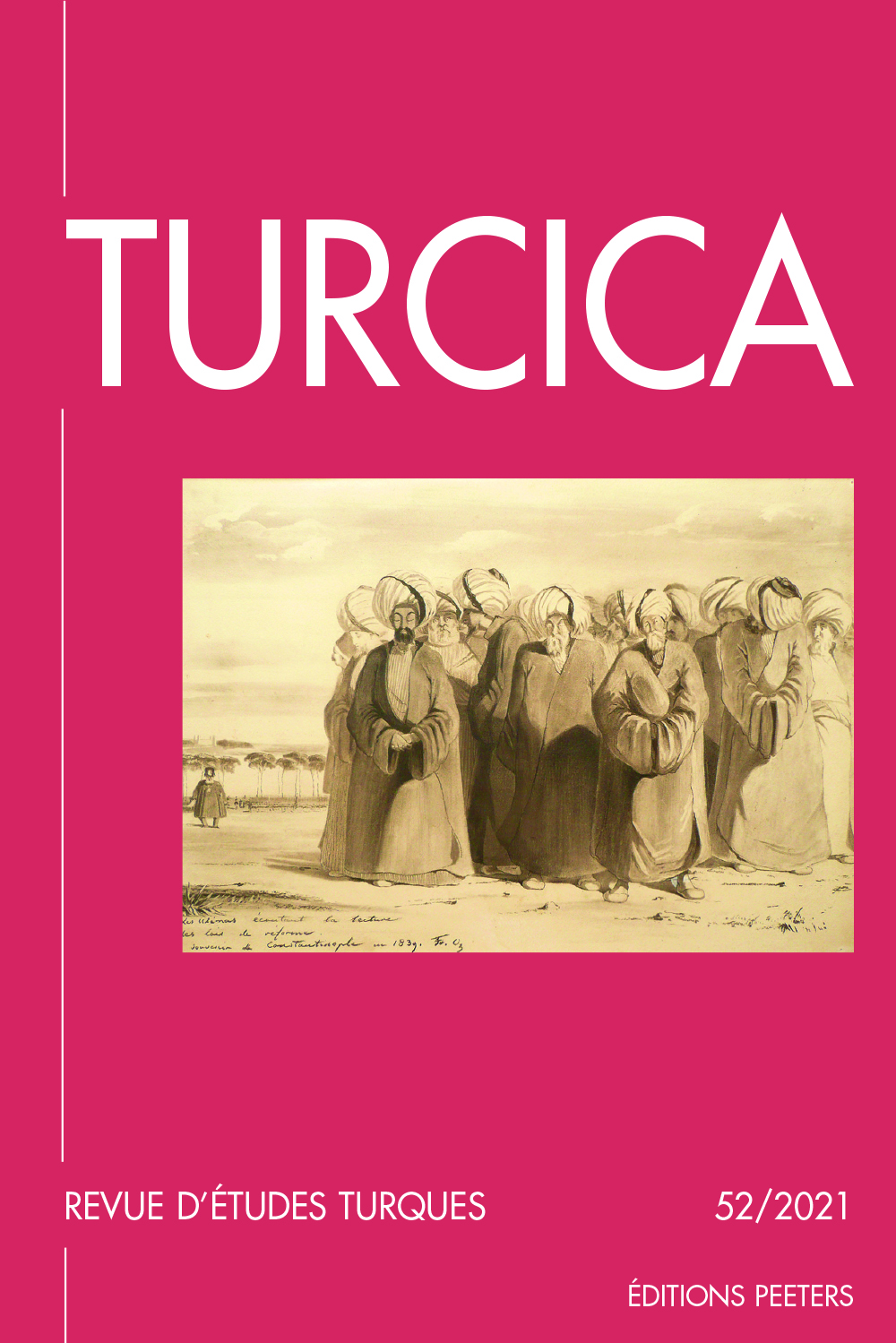 previous article in this issue previous article in this issue | next article in this issue  |

Preview first page |
Document Details : Title: State and Economy in Late Ottoman Thrace Subtitle: Mihalaki Gümüşgerdan and the 'Woollens of the State' Author(s): LYBERATOS, Andreas Journal: Turcica Volume: 46 Date: 2015 Pages: 205-236 DOI: 10.2143/TURC.46.0.3087635 Abstract : The purpose of the paper is to contribute to the discussion on the role of the late Ottoman state’s involvement in the economy by revisiting the celebrated topic of the Ottoman army provisions in woollen cloth during the 19th century, on the basis of fresh material from the family archive of the notorious entrepreneur Mihalaki Gümüşgerdan, an equally celebrated personality of the late Ottoman Balkans. This case of direct involvement of the Ottoman state, as a major client and actor, in the emerging regional woollen product and factor markets of Northern Thrace highlights the complex economic and social environment in which the provisioning of the new standing Ottoman army in woollen cloth takes place. Resisting any trend to crudely personify the state or pass straightforward verdicts on its role, the analysis empirically reconstitutes the mechanisms of the provisioning process, which involve various socially and geographically disparate actors, and sheds more light on the dialectics between state and society in the Ottoman Reform period. In this respect, it is argued that regional differences and varying institutional settings in the woollen-producing regions play an important part on the shaping of this interaction and the particular paths of economic and social transformation. Le présent article vise à contribuer à la discussion sur le rôle de l’implication de l’État à l’époque ottomane tardive dans l’économie à travers un réexamen du thème de l’approvisionnement de l’armée ottomane en drap de laine au cours du XIXe siècle, en utilisant des nouvelles données provenant des archives de l’entrepreneur Mihalaki Gümüşgerdan, un personnage célèbre dans les Balkans de la fin de l’époque ottomane. Ce cas d’implication directe de l’État ottoman en tant que client important et acteur dans les marchés émergents régionaux de produits de laine de la Thrace du Nord révèle l’environnement économique et social complexe dans lequel s’effectuait l’approvisionnement de la nouvelle armée ottomane permanente en draps de laine. Partant du refus de personnifier l’État ou d’émettre sur son rôle des jugements simples, l’analyse reconstitue d’une manière empirique les mécanismes d’approvisionnement de l’armée, qui impliquent différents acteurs socialement et géographiquement disparates, et donne des aperçus nouveaux sur la dialectique entre l’État et la société dans la période des réformes de l’Empire ottoman. À cet égard il est soutenu que les spécificités régionales et les divers paramètres institutionnels dans les régions de production jouent un rôle important dans la formation de cette interaction et dans les voies particulières qu’ont suivies les transformations économiques et sociales. |
 |


